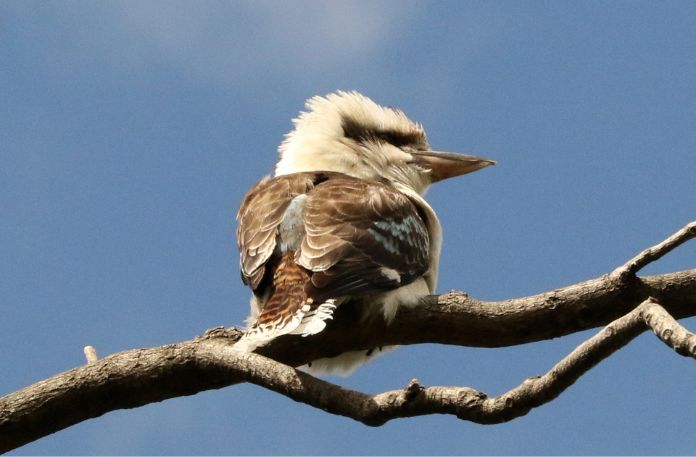Today’s Bird of the Day was nominated by founder and CEO of PlantingSeeds Projects, Judy Friedlander, whose favourite urban native bird is the kookaburra.
Although she felt she should favour a bird that was non-carnivorous, Friedlander said kookaburras specialised in looking cute and she had early memories of them visiting her family home in Lane Cove, where kookaburras used to sit on the Hills Hoist.
“Kookaburras are quintessential, old-school Australian,” she said.
“Kookas have the best haircuts too.”
Friedlander’s organisation, PlantingSeeds Projects runs the B&B Highway, which supports birds, bees, butterflies, bats and other pollinators important for biodiversity.
“We are planting native vegetation and educating students about pollinators and biodiversity in schools in three states,” she said.
“With over 100 B&Bs (Bed & Breakfasts for Birds, Bees & Biodiversity), by early next year we will have started forming regenerative corridors in the urban environment.
“Research shows that, if we regenerate our cities and towns by planting natives and considering biodiversity needs, we can help the declining numbers of birds, bees and other pollinators important for ecosystems and our food supplies.”
She said it was important to both learn about and implement biodiversity practices.
“So many people – from young children to adults – have never even planted a plant and do not know the basics about pollination, which is fundamental to our integrated biological systems.
“Participants in the B&B Highway enjoy knowing they are helping their local suburb and linking in with other suburbs to create something bigger.
“The B&B Highway also encourages citizen science observations and we teach about this as well. Like the Great Southern BioBlitz, our National School B&B BioBlitz aims to gather important data for biodiversity research.”
Read more about why urban biodiversity is key to our future here.
_______________
Follow @southsydneyherald on Instagram to see our birds of the day and learn about protecting urban biodiversity.





